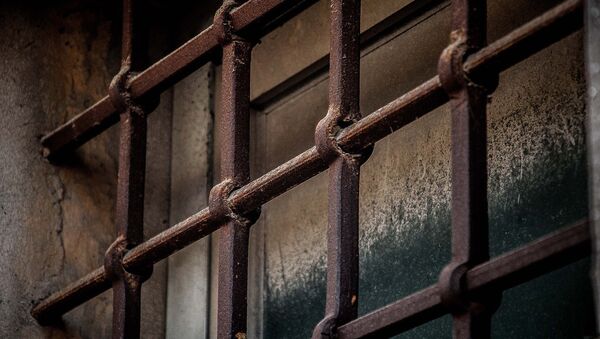The suicide of the terror suspect raised a lot of questions among German public. In particular, people wondered how a detainee could quietly commit suicide in a cell that was supposed to be under enhanced surveillance.
"This decision [to place the suspect here] was jointly made by social workers, psychologists and prison staff. The results of the personality test said that there was no threat of suicide in this suspect's case. Therefore, such a measure was recognized as sufficient. The suspect managed to commit suicide in the interval between the [security] check-ups," Gemkov told Sputnik.
On Wednesday, German media reported that al-Bakr had committed suicide even though he was under round-the-clock surveillance. Later on, the State Chancellery of Saxony confirmed that Syrian Jaber al-Bakr killed himself in his cell.
The 22-year-old Syrian migrant was arrested on Monday in Leipzig after he was captured by fellow Syrians who alerted the police.
During a press conference on Thursday, it turned out that there was another room where the prisoner could have been safer. However, despite several warnings of the danger of suicide, including those made by the court's judge, the authorities decided to place the suspect in a common cell.
"This so-called special secure room does exist. Its walls are covered with rubber, it has a soft floor, and there is a hole in the corner to do the deed. However, to accommodate prisoners in such a room, one needs clear legal prescriptions. This means that it is not always possible to keep a prisoner there," Gemkov said.
Some reports also said that security check-ups in the prison were, among others, carried out by an intern. However, Gemkov assured that all prison staff was experienced and did their job very well.
"We have highly qualified guards, perfectly prepared for surveillance tasks. Specifically in this case, they examined the prisoner even more often than it is prescribed by instructions. Thus, this intern fulfilled her task perfectly," the official concluded.




